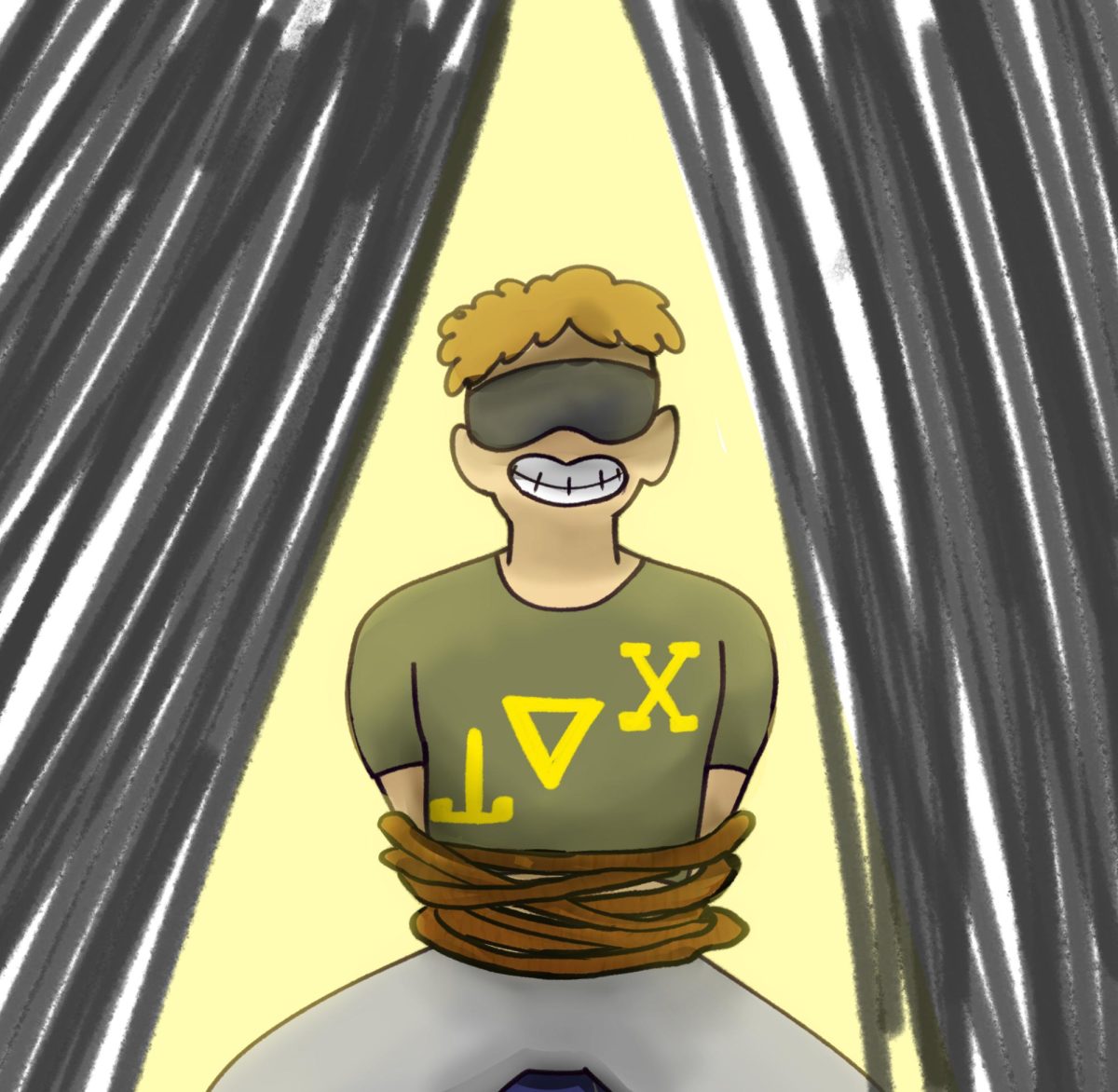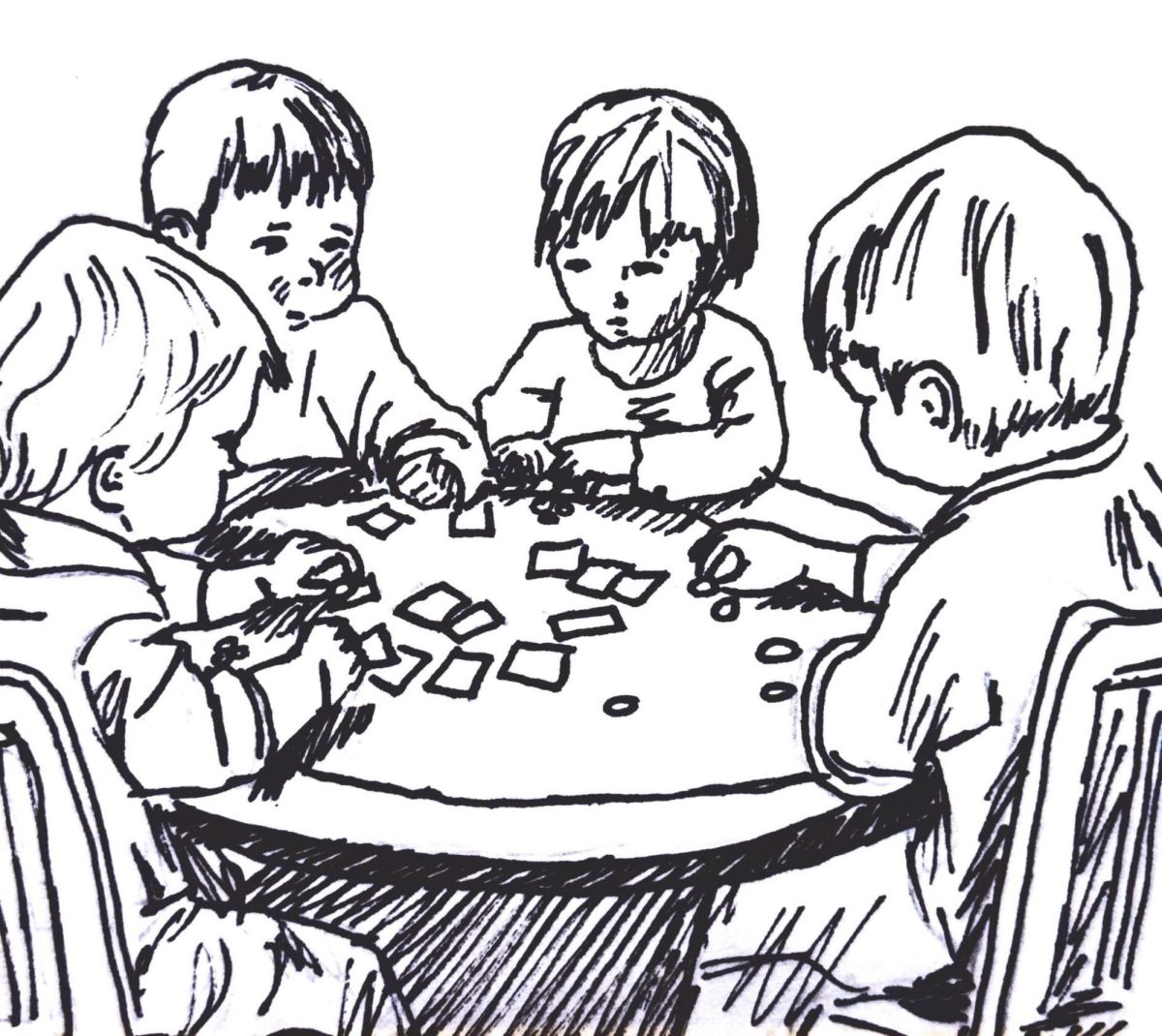Illustration by Ren Rader
In a quote from a news article in the last edition of the Trinitonian, a student raised concerns that the open flame policy is denying Native American students the ability to practice smudging. I would like to raise my voice in support of their stance. Smudging is every bit as sacred and important as Holy Communion, and like Communion, it involves substances that are normally prohibited on most parts of campus. Having one’s smudging materials confiscated under a fire policy is as gut-wrenching as it would be if Holy Communion wine was confiscated from a Church for giving alcohol to minors.
The student called this “another form of white supremacy,” and it is very easy to say (and truthful) that there was no policy because we didn’t know there was a need for one or that previously there wasn’t a need for one. But here’s the thing: the very fact that we didn’t have to consider their rituals and practices is because of white supremacy.
My white ancestors came here to America and many of them helped commit genocide against Native Americans and enslave Africans. Because of this, around 60 percent of my country is white alone, and only 1.3 percent is Native American. In our majority-rule democracy, it has been ensured that white people could always outvote any other race. A system which ensures, either de facto or de jure, that one group must be appealed to, must be allied with and that all other groups could be ignored, can most accurately be described by the word “supremacy.”
Prejudice, and racism specifically, is almost never born of conscious decisions to be malicious. It is formed of a vast cultural miasma of ignorance and indifference. They come in the form of a hundred thousand well-meaning questions, systems and assumptions that weigh on the backs of non-white people and crush them. We can only fix these problems if we (white folks) ourselves listen and recognize where things have gone wrong and move to fix them.
These fire policies almost certainly effect other faiths and spiritualities too! Nearly every religion and spiritual practice ever created has a foundational ritual involving fire. Students need places where they can perform these rituals. Think of all the religions with candle vigils, smoke cleansing, incense, burning sigils, burning meals for the gods, the list goes on and on.
I’m incredibly lucky that all I needed in order to ward my room was some anise seeds and a rhyme-prayer. Optimally, I would be burning offerings of spices and myrrh about once a month and lighting a candle in front of my altar as often as possible. I am currently resigned to the fact that I just can’t do that.
We obviously cannot resolve to just turn all the fire alarms off in the dorms. Nor will resolving anything be a simple or fast act. There is a large and largely unknown number of people who must be consulted on changing the fire policies. A vast array of needs must be accounted for. This has been a recurring theme every time something like this has come up. The students don’t know who to talk to, the administration doesn’t quite know what’s being asked of whom, and everyone ends up frustrated. Talks become heated, confused and less productive.
I aim to found a student organization in order to create a streamlined, clear process for enabling students to practice their spirituality. One connected with administration, the local community, and one able to host religious events. I want to make enabling a student to practice their spirituality as painless as an interview.
A clear line of communication for faith-based accommodations is clearly needed. In addition, a dedicated space for non-Abrahamic faiths, such as Wicca, Hinduism, Buddhism, and most definitely the vast variety of Native American faiths, will be a valuable addition to the current roster of faith-based organizations.
Diversity flourishes when everyone is free to practice what they believe, unfettered by a bureaucracy made without them in mind. I truly think that the Trinity community has the strength to make everyone feel welcome and free here. We all want to save the world, and making Trinity a more joyful and inclusive space seems like a beautiful place to start.






